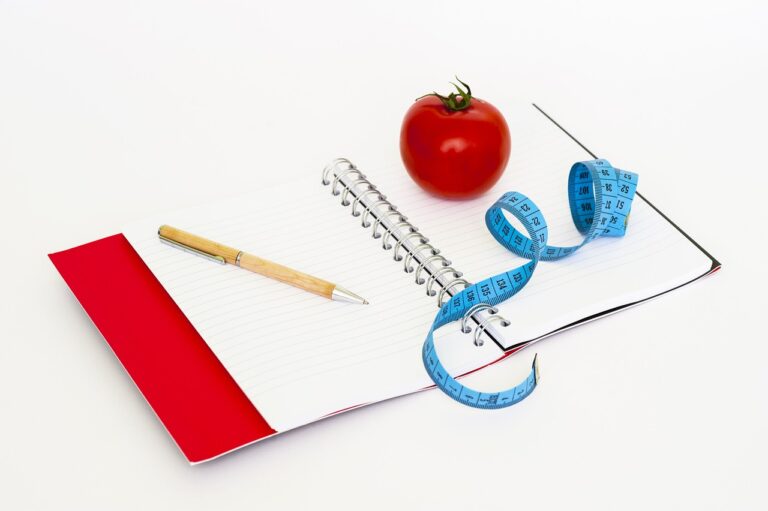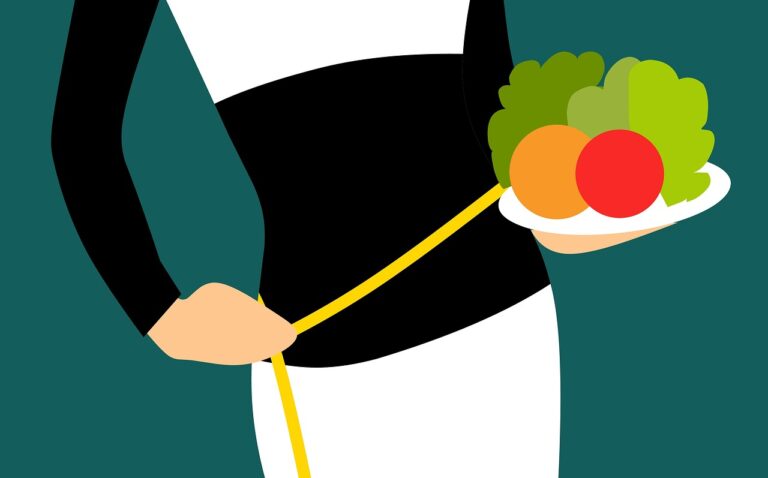Obesity is a growing concern in Pakistan with a significant population facing weight-related issues. According to WHO, 23% of the Pakistani population is clinically obese. On the other hand, more than half of the population is at risk of being overweight and obese. This increasing risk is owed to the eating patterns and dietary habits along with rich cultural and traditional cuisines. Food choices and lifestyle factors play a key role in weight loss and weight gain. Being overweight or obese raises the risk of various health issues, such as type 2 diabetes, heart disease, stroke, high blood pressure, and some malignancies, thus it is a serious worry. Losing weight depends on eating a balanced, healthy and calorie-counted diet. Moreover, lifestyle factors also influence the phenomenon of weight loss and weight gain.
A nutritious diet can lower a person’s chance of developing chronic illnesses and enhances his general well-being. Apart from adhering to a nutritious diet, consistent exercise and effective stress management are critical components in preserving a healthy weight and general state of health. In this article, we will discuss Pakistani diet and lifestyle and explore the best diet plan for weight loss Pakistan.
The Pakistani Diet and Lifestyle
Before diving into specific diet plans, it’s essential to understand the typical Pakistani diet and lifestyle that contributes to weight gain. The traditional Pakistani diet is rich in carbohydrates, often relying on white rice and white bread. High consumption of sugary beverages, fried foods, and sweets also plays a significant role in weight-related issues. Sedentary lifestyles further compound the problem. Our cooking customs center on a flavorful and spice-rich mixture that’s frequently drizzled with copious amounts of oil. As a result, our meals frequently contain a lot of sugar and carbs, which can lead to unintended weight gain.
Fundamentals of a Balanced Diet
A healthy diet is the diet which consists of all the major food groups, which provide the body with the nutrients it needs to function correctly. Macronutrients and micronutrients are the main elements of a balanced diet. The nutrients required by the body in larger quantities are macronutrients whereas the nutrients required in smaller proportions are known as micronutrients.
Macronutrients: Carbohydrates, Proteins and Fats
Carbohydrates, protein, and fats are examples of macronutrients, which the body needs in large quantities.
The main source of energy for the body is carbohydrate, which is found in foods like bread, rice, pasta, fruits, and vegetables. Simple carbohydrates, which are found in sugary foods and beverages, should be consumed in moderation, while complex carbohydrates, which are found in whole grains, fruits, and vegetables, are preferred because they give the body fibre, vitamins, and minerals.
Protein is present in foods like meat, poultry, fish, beans and lentils and is necessary for the body’s tissue growth and repair as protein is the main structural element of our bodies. Animal sources are generally considered good protein sources, however complementing two plant based protein foods fulfills the individual needs. The body uses fats for energy and to help absorb vitamins that are fat-soluble. For optimal health, one should limit saturated and trans fats, which are present in fried foods, pastries, and high-fat meats, in addition to the consumption of healthy fats like those in nuts, seeds, and fatty fish.
Micronutrients: Vitamins and Minerals
Micronutrients include vitamins and minerals. Our bodies need vitamins and minerals in smaller quantities. Vitamins are found in a range of foods, including fruits, vegetables, and whole grains. They are necessary for many body processes, such as immune system function, blood clotting, and metabolism. Foods like dairy products, leafy greens, and whole grains are rich in essential micronutrients. They are also necessary for many biological processes, such as the development of strong bones and teeth, nerve function, and muscle contraction.
All of these essential elements present in a balanced, healthful diet can help people maintain a healthy weight, lower their chance of developing chronic illnesses, as well as enhance their general health and well-being.
Role of Dietary Fiber and Water
Additionally, eating foods high in fiber can help you feel fuller for longer and help you lose weight by regulating your digestive system. Add an abundance of fruits, vegetables, legumes, and whole grains to your diet as well.
Water is essential for losing weight. It facilitates better digestion, increases metabolism, and reduces appetite. Consuming enough water helps the body burn calories effectively, prevents overeating, and keeps the body hydrated. It’s also critical to maintain hydration for the best possible weight loss outcomes.
Choosing the Right Diet Plan
Selecting the right diet plan is crucial, but it’s not a one-size-fits-all approach. Before starting any diet, it’s recommended to consult a healthcare professional to assess individual needs and constraints. DietFit is one of the best platforms for providing the best weight loss diet plan Pakistan. You can contact the best nutrition doctor at DietFit by clicking this link…. Adopting a nutritious weight-loss diet plan can help you eradicate the risk of obesity. Moreover, it improves longevity and reduces the risk of metabolic disorders and chronic illnesses.
Pregnancy is a special time that requires a balanced diet to ensure both the mother and the baby’s health. A diet plan for pregnant lady in Pakistan should include the following:
- Adequate protein sources like lean meat, fish, and lentils.
- Whole grains such as brown rice and whole wheat bread.
- A variety of fresh fruits and vegetables for essential nutrients.
- Dairy products such as yogurt and tofu for calcium.
- Plenty of water to stay hydrated.
Weight Loss Diet Plan for Sedentary Individuals
The word “diet” is frequently brought up in discussions pertaining to weight-related issues. It takes careful consideration to choose the right diet because what suits one person may not suit another. More often recommended diet for weight loss is 1,300 calories diet for sedentary individuals, but before beginning any new diet, make sure it is in harmony with your body. 1300 calories diet plan vegetarian is based on:
- Plant-based protein sources such as beans, lentils, tofu, and quinoa.
- Low-calorie vegetables such as cucumber and cabbage for bulk and essential nutrients.
- Limited intake of high-calorie dairy and dairy alternatives.
- Healthy fats such as nuts and seeds in moderation.
Best Diet Plan for Weight Loss Pakistan – 2300 calories Diet Plan
Although, a minimum of 1200 – 1300 calorie diet is considered optimal for adults with a sedentary lifestyle. However, a 2300 calories diet plan is suitable for individuals with moderate activity levels and a goal of gradual weight loss. It should consist of:
- Balanced macronutrient distribution, including carbohydrates, proteins, and healthy fats.
- Whole foods, with an emphasis on minimizing processed foods.
- Portion control to ensure calorie intake aligns with the goal.

Sample Diet Plan
Pre-Breakfast
1 tsp. honey with a pinch of turmeric + 3 peeled overnight soaked almonds
Breakfast
2 slices multigrain bread + 1 egg omelette with vegetables
2 small dates
1 cup tea without sugar
Snack
1 serving of fresh fruit + Half cup low fat yogurt
Lunch
1 whole wheat chapatti
Half cup vegetable or meat curry
A bowl of salad
Snack
1 cup green tea + a handful of nuts
Dinner
1 bowl of beans and chickpeas salad
Bedtime
1 cup skimmed milk + Half tsp. turmeric
Ideal fat loss diet plan for male
Daily caloric requirements of males are generally higher than females of corresponding age. Therefore, men often have different nutritional needs when it comes to weight loss. They need more protein foods owing to their muscular body structure. A fat loss diet plan for male should include:
- Lean protein sources such as chicken, turkey, and lean cuts of red meat.
- Complex carbohydrates from whole grains like oats and brown rice.
- Plenty of vegetables for vitamins, minerals, and fiber.
- Regular, moderate servings of healthy fats like avocados and olive oil.
- High-intensity workouts to boost metabolism and burn fat.
Avoiding Common Pitfalls
While following a diet plan, it’s important to avoid common dietary mistakes, such as excessive sugar and processed food intake. Staying hydrated with water and avoiding sugary beverages is key. Engaging in regular physical activity complements your diet plan and accelerates weight loss.
Tracking Progress and Staying Motivated
One of the key elements of a successful weight loss journey is tracking your progress. Regularly weigh yourself, measure body fat percentage, and take photos to visually monitor changes. Moreover, stay motivated by setting realistic goals and consider seeking support from friends or a fitness community. In addition, do not forget to celebrate your achievements along the way.
The Role of a Nutrition Doctor
Navigating the complex world of diets and nutrition can be challenging. A nutrition doctor plays a crucial role in providing expert guidance, ensuring that your diet plan aligns with your individual needs, alongwith monitoring your progress. Consult a certified nutritionist at DietFit to create a personalized diet plan and monitor your journey toward better health.
Take Away
In your quest for the best diet plan for weight loss Pakistan, it’s essential to remember that there is no one-size-fits-all solution. Your journey to a healthier weight and lifestyle should be customized to your specific needs and preferences. A balanced diet, regular exercise, and expert guidance from a nutrition doctor are your best allies in the battle against excess weight. So, always try to make informed choices and you will be on the path to a healthier and happier you.

Zain Ul Abidin
Social Media Marketing Consultant | Dietitian & Lifestyle Coach | Writer | Graphic Designer



